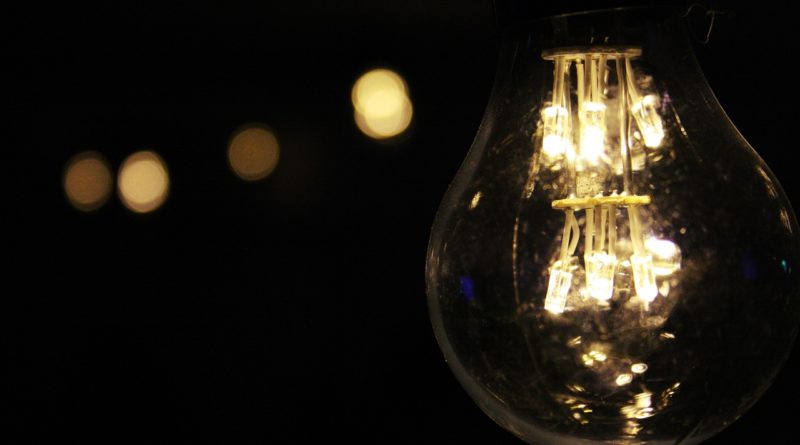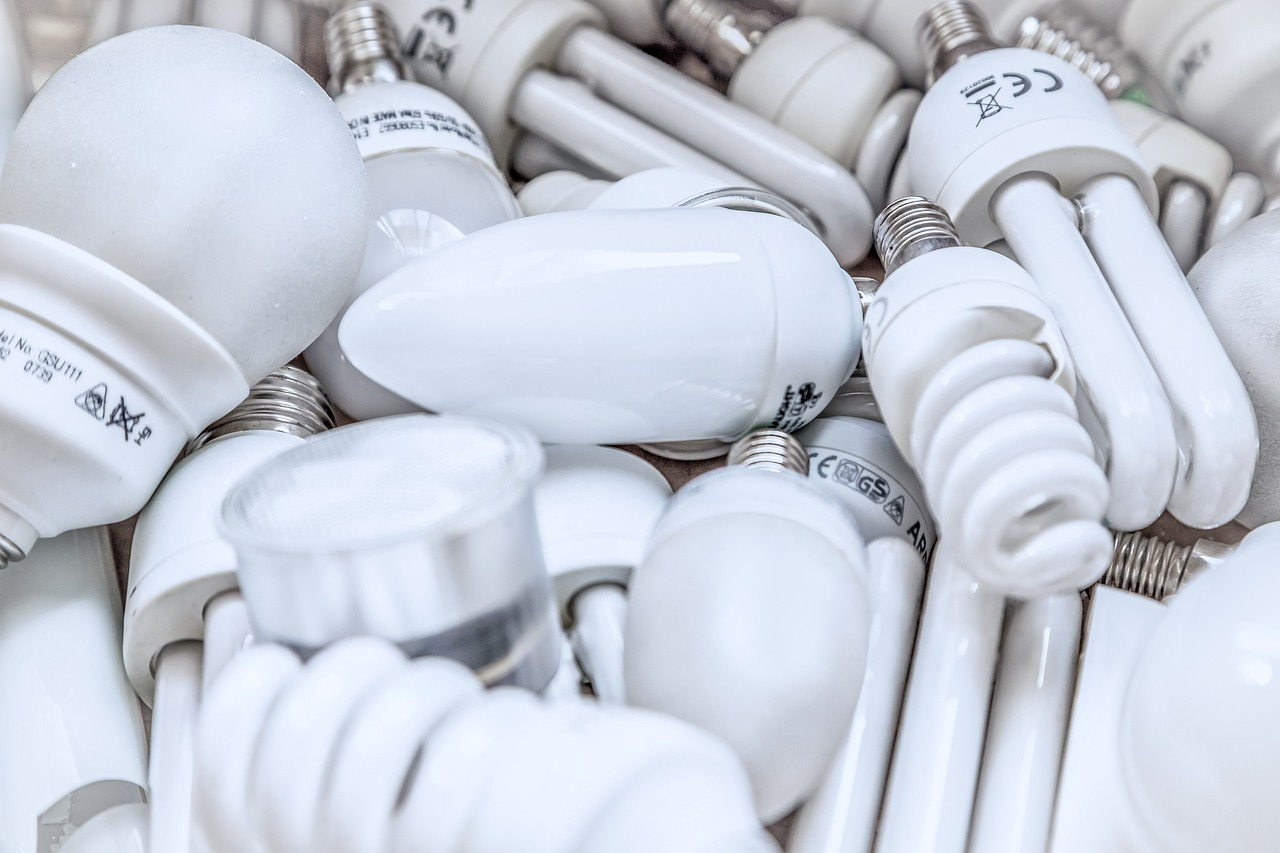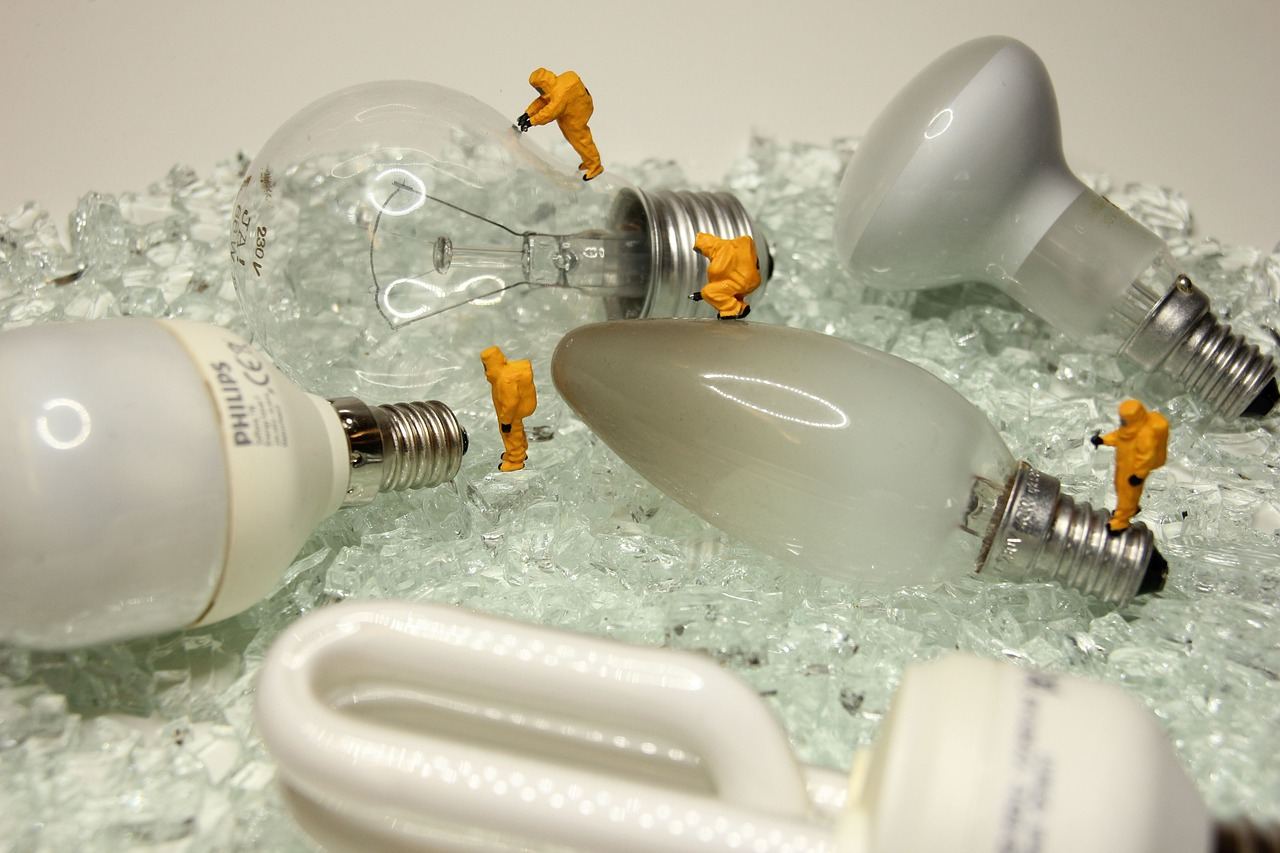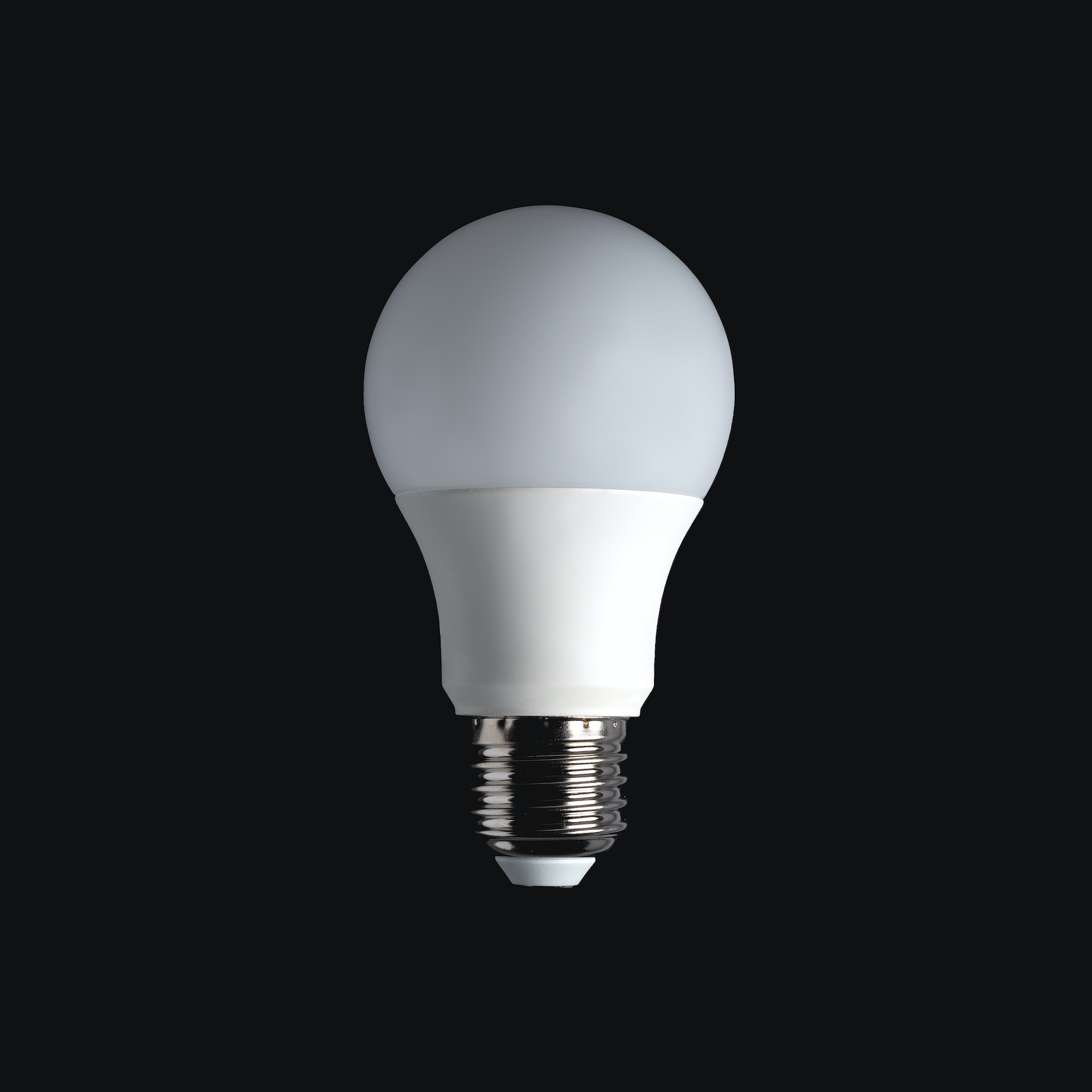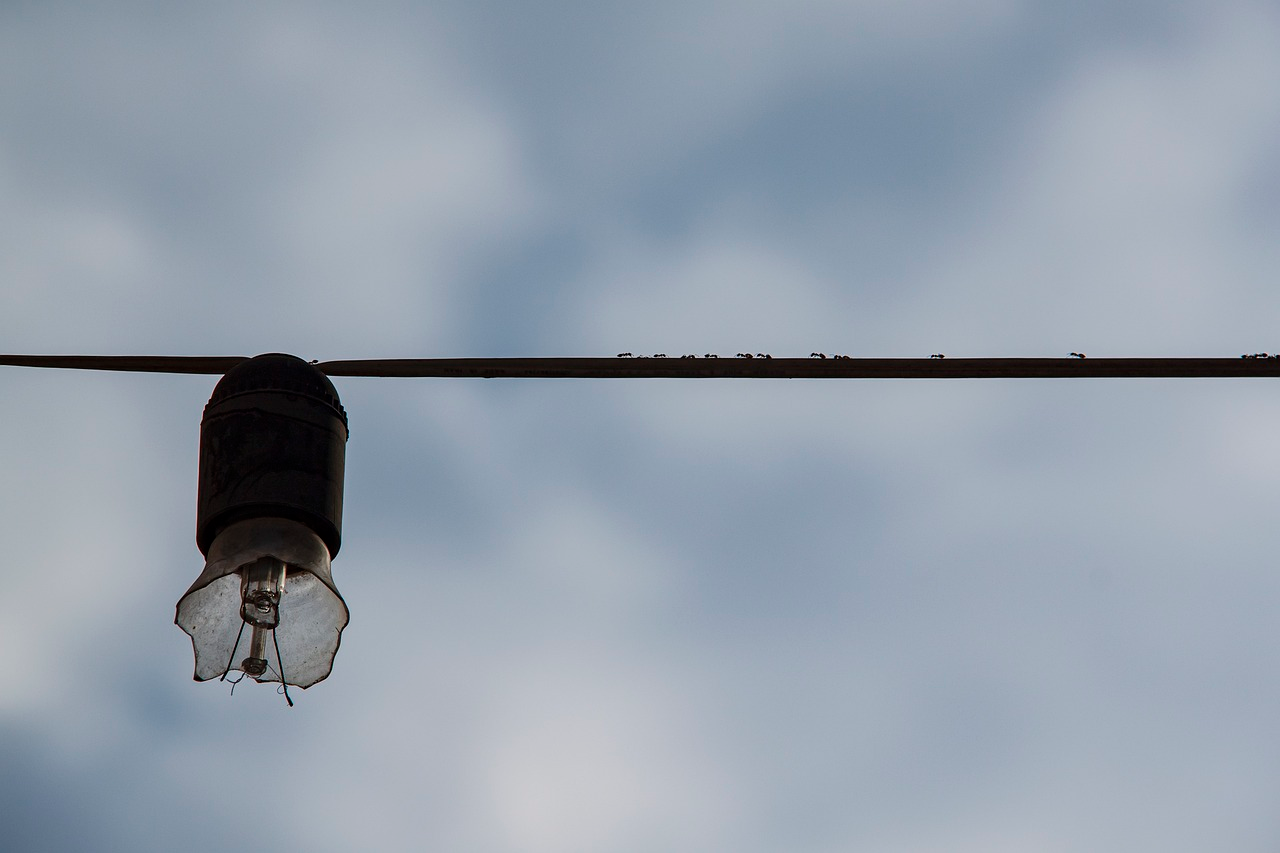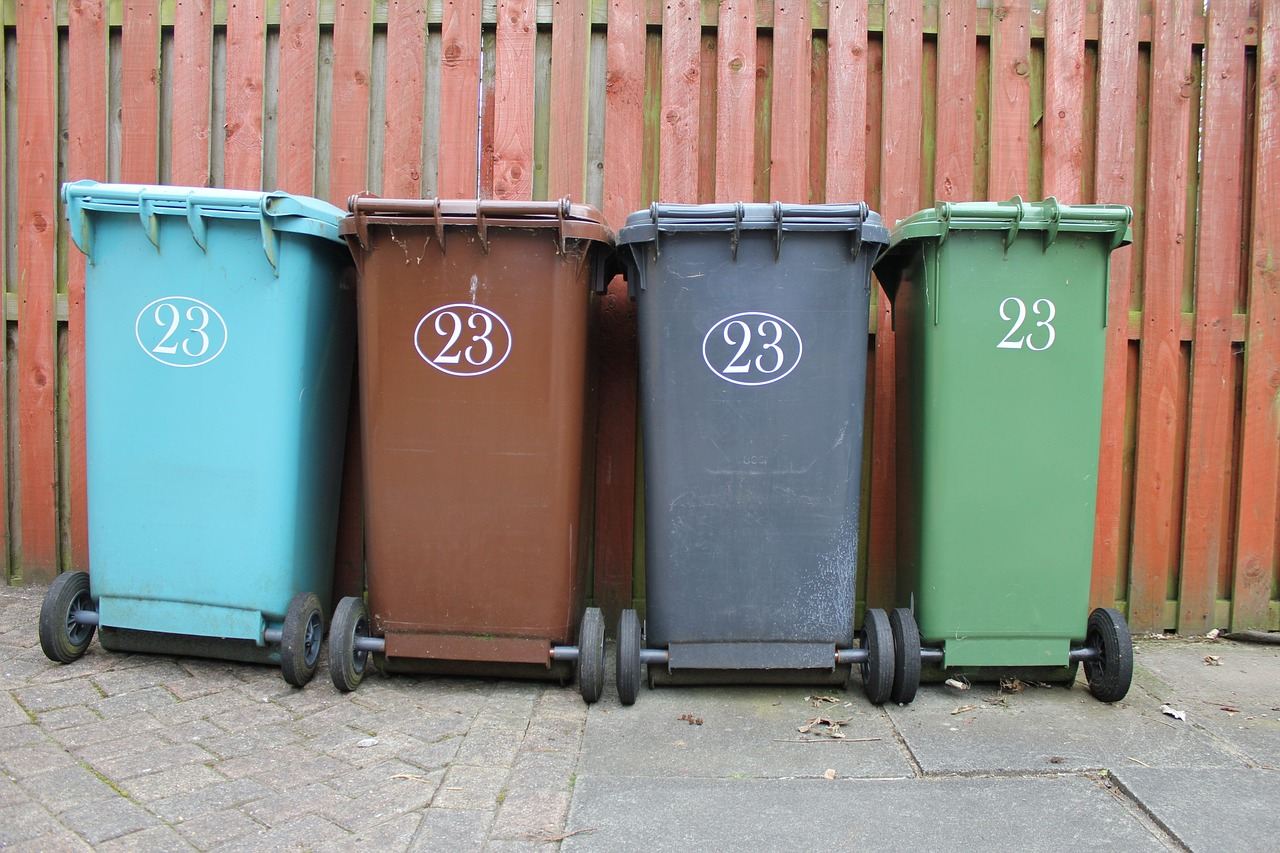How to Dispose of Light Bulbs in the UK: A Comprehensive Guide
Did you know that disposing of light bulbs correctly is not only important for the environment, but also for your safety? In this comprehensive guide on how to dispose of light bulbs, we will walk you through the various types of light bulbs, their proper disposal methods, and the importance of recycling energy-efficient bulbs. You’ll also learn about recycling locations, handling broken bulbs, donating used ones to charities, and choosing environmentally friendly lighting options. Let’s shed some light on this illuminating subject!
Short Summary
- It is important to distinguish between different types of light bulbs and follow the correct disposal methods for each.
- Recycling locations and collection points can be found online or through local councils, while donating used light bulbs supports sustainability.
- Businesses must comply with WEEE regulations when disposing of lightbulbs, while choosing energy efficient options promotes environmental protection.
Understanding Different Types of Light Bulbs
Understanding the different types of light bulbs is essential for proper disposal and recycling. The most common types of bulbs include:
- Incandescent bulbs: the traditional bulbs we’re all familiar with
- Halogen bulbs: a more efficient variant that emits bright white light
- LED bulbs: highly energy-efficient and durable
- CFL bulbs: compact fluorescent lamps that use less energy than traditional bulbs
It’s important to segregate light bulbs for recycling, as some bulbs contain hazardous substances that must be recycled with caution. By knowing the different types of light bulbs, you can ensure that you dispose of them correctly, protecting both the environment and your health.
Proper Disposal Methods for Each Type of Light Bulb
Each type of light bulb requires a specific disposal method to ensure safety and environmental protection. From incandescent to CFL bulbs, it’s important to know the proper way to dispose of light and the bulbs themselves.
In the following sections, we’ll explore the correct disposal methods for incandescent, halogen, LED, and CFL bulbs.
Incandescent Bulbs
Incandescent bulbs can be disposed of in regular household waste. However, to prevent breakage, it’s recommended to store them in their original packaging or wrap them in waste paper or fabric before disposal. This ensures that any fine wires or glass shards are contained, reducing the risk of injury.
It’s essential to remember that only incandescent and halogen bulbs are suitable for disposal in the general waste bin. Other types of bulbs, particularly those containing hazardous materials, require special handling and recycling.
Halogen Bulbs
Halogen light bulbs have several advantages over incandescent bulbs.
- They are more efficient and emit a bright white light.
- However, they cannot be recycled and should be disposed of in the regular waste bin.
- To avoid breakage and potential injury, it’s best to wrap halogen bulbs in waste paper, fabric, or a plastic sealed bag before disposal.
Although it’s unfortunate that halogen bulbs cannot be recycled, it’s crucial to follow proper disposal methods to ensure safety and prevent any harm to the environment.
LED Bulbs
LED bulbs are energy efficient and can be fully recycled. They should be taken to local recycling plants or collection points for proper disposal. Recycling these bulbs ensures that valuable materials, such as metals and glass, can be re-utilized, reducing waste and conserving resources.
When disposing of LED bulbs, it’s important to know how to properly dispose of light bulbs in general. Make sure to follow local recycling guidelines and bring them to designated collection points. This helps to keep harmful substances out of landfills and promotes a more sustainable future.
CFL Bulbs
CFL bulbs contain hazardous materials, such as mercury, lead, and cadmium, and must be recycled properly at designated recycling facilities. These bulbs are classified as hazardous waste, and improper disposal can pose a risk to human and environmental health.
When you need to dispose of a CFL bulb, make sure to follow light bulb recycling guidelines and bring it to a proper recycling facility. This not only conserves valuable resources like glass and metals, but also ensures that hazardous waste is managed safely.
Recycling Locations and Collection Points
Finding recycling locations and collection points for various types of light bulbs is essential for proper disposal and recycling. Many household recycling centers and specialized collection services, such as Recolight, offer free collection and recycling for both commercial and domestic light bulbs.
To locate a recycling point for light bulbs in your area, you can use online locators or contact your local council to inquire about recycling centers and collection points. Remember, proper disposal of light bulbs is not only crucial for the environment, but also for your safety.
The Importance of Recycling Energy-Efficient Light Bulbs
Recycling energy-efficient light bulbs like compact fluorescent bulbs, CFLs, LEDs, fluorescent tubes, low energy light bulbs, and recycle halogen light bulbs is crucial for preserving precious resources and keeping hazardous waste out of the environment. It’s essential to recycle light bulbs, as these energy-saving bulbs contain valuable materials that can be re-utilized, reducing waste and the amount of energy used to manufacture new bulbs. Additionally, properly disposing of old light bulbs helps prevent potential harm to the environment.
By recycling energy-efficient light bulbs, you’re not only helping to conserve resources, but also contributing to a more sustainable future. Remember, every small step counts, and your actions can make a significant difference when it comes to using energy saving light bulbs.
Handling Broken or Damaged Light Bulbs
Accidents happen, and light bulbs can break or become damaged. When handling broken or damaged light bulbs, especially those containing hazardous materials like mercury, it’s essential to take proper precautions. Here’s what you should do:
- Wear gloves.
- Clean up any glass shards with a paper towel.
- Wrap the broken pieces in waste paper, fabric, or place them in a sealed bag. Ensure that the bag is plastic-based to prevent any leakage.
For broken CFL or fluorescent bulbs, follow the same procedure, but make sure to recycle them alongside any other old CFL or fluorescent bulbs. This ensures that hazardous materials are managed safely and responsibly.
Donating Used Light Bulbs to Charities
Donating used light bulbs to charities can be a great way to give them a second life while supporting a good cause. Many charitable organizations accept donations of used light bulbs, allowing them to be reused and generating revenue through the sale of donated items.
To donate used light bulbs, contact local charities or utilize online donation platforms like Freecycle or Give and Take. By donating your used light bulbs, you’re not only helping those in need, but also promoting sustainability and reducing waste.
Legal Requirements for Businesses Disposing of Light Bulbs
Businesses must adhere to legal requirements when disposing of light bulbs, including compliance with Waste Electrical & Electronic Equipment Directive (WEEE) regulations and proper waste management practices. These regulations mandate that businesses take responsibility for the collection, treatment, and recovery of waste electrical equipment, including light bulbs.
By following these legal requirements and guidelines, businesses can ensure that they are disposing of light bulbs in an environmentally responsible manner, protecting both the environment and public health.
How to Choose Environmentally Friendly Lighting Options
Choosing environmentally friendly lighting options can help reduce waste and promote sustainability. Energy-efficient bulbs, such as LED light bulbs and CFL bulbs, are great alternatives to traditional incandescent or halogen bulbs. These bulbs use less energy and last longer, reducing the need for frequent replacements and disposal.
When shopping for new lighting options, look for energy-efficient bulbs and fixtures with the Energy Saving Trust Recommended logo or ENERGY STAR certification. By making eco-friendly choices, you’re contributing to a greener future and promoting responsible waste management.
Summary
In conclusion, properly disposing and recycling light bulbs is essential for the environment and our safety. From understanding the different types of bulbs to learning about recycling locations and legal requirements, this guide has provided valuable information to help you make environmentally responsible choices when it comes to light bulbs. Remember, every small action counts, and together we can create a brighter, more sustainable future.
Frequently Asked Questions
Can I put light bulbs in the bin?
Standard incandescent light bulbs aren’t accepted by many recycling centres and should be disposed of with regular household waste.
Therefore, it is safe to put these light bulbs in the bin.
Can I recycle light bulbs at Tesco?
Yes, you can recycle light bulbs at some branches of Tesco that have special recycling units in-store as well as other stores such as Ikea.
You can also find a nearby recycling point on the Recolight website.
How do you dispose of LED light bulbs UK?
LED light bulbs should be disposed of like regular incandescent bulbs; they do not contain harmful substances. To ensure safety, check if they are safe to throw away with your household rubbish or better yet, recycle them.
Recycling LED light bulbs is the best option for the environment, as it reduces the amount of waste that goes into landfills. Additionally, it helps conserve resources and energy.
How do I dispose of old incandescent bulbs?
Dispose of old incandescent bulbs in regular household waste, taking care to store them in their original packaging or wrap them for protection.
Can halogen bulbs be recycled?
It is not possible to recycle halogen bulbs, and they should be disposed of as regular waste.

